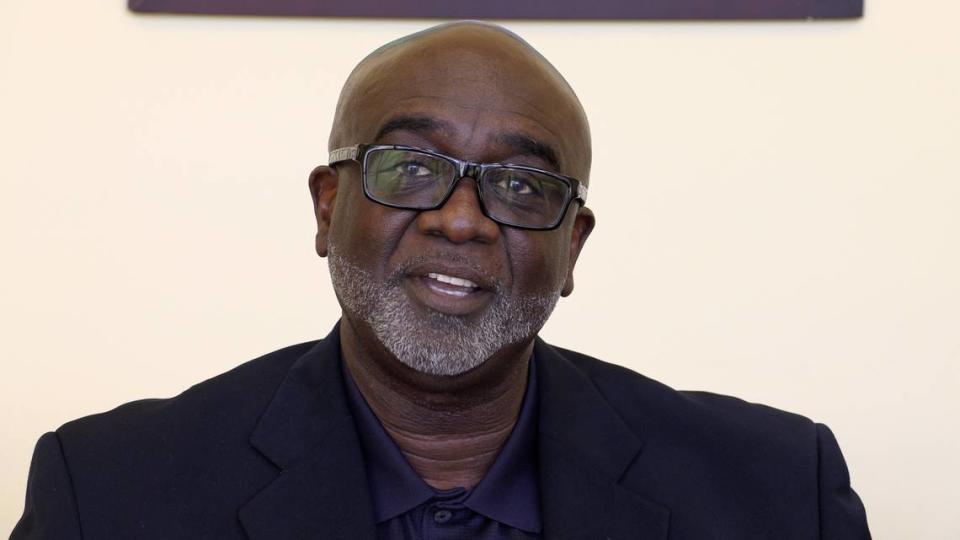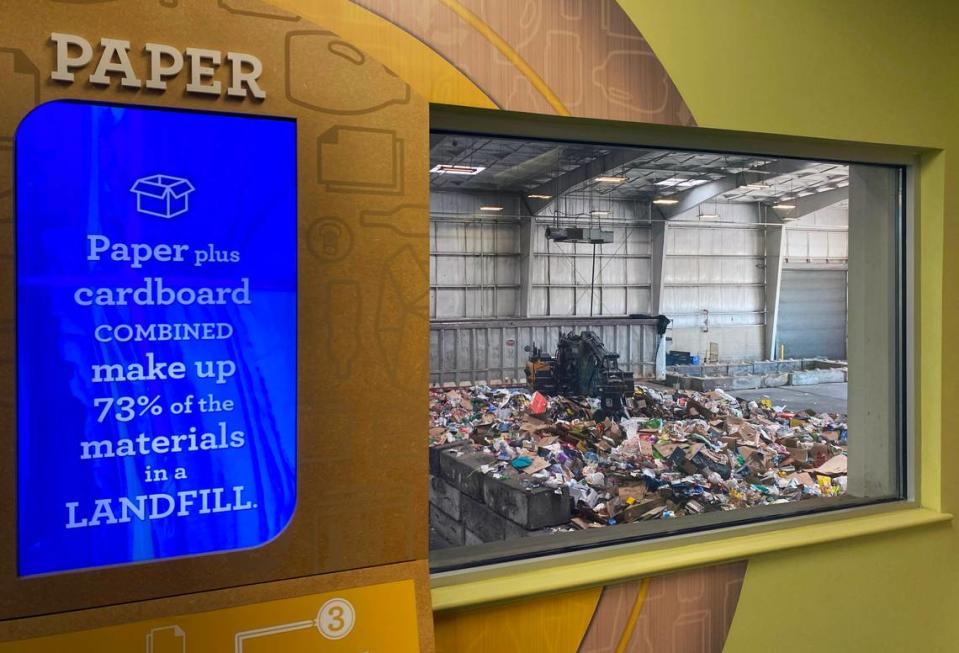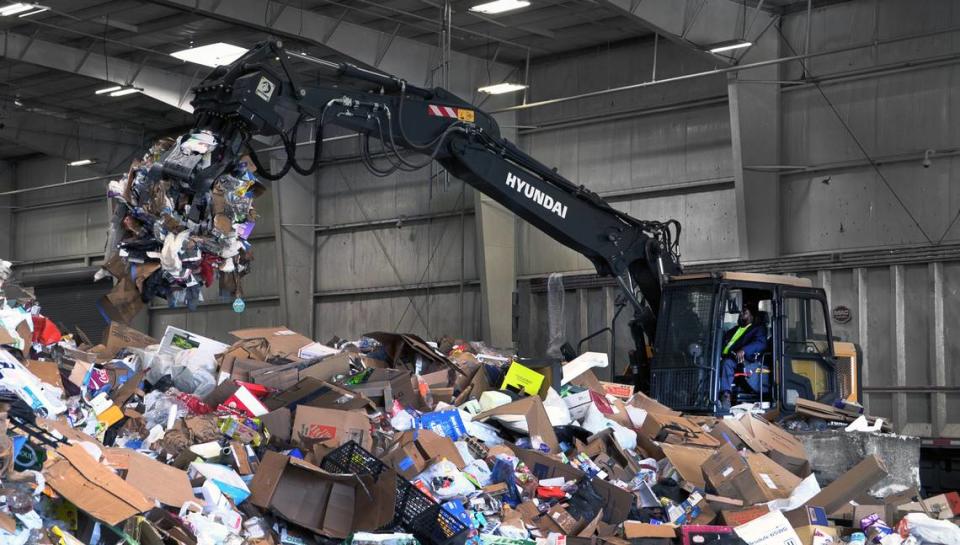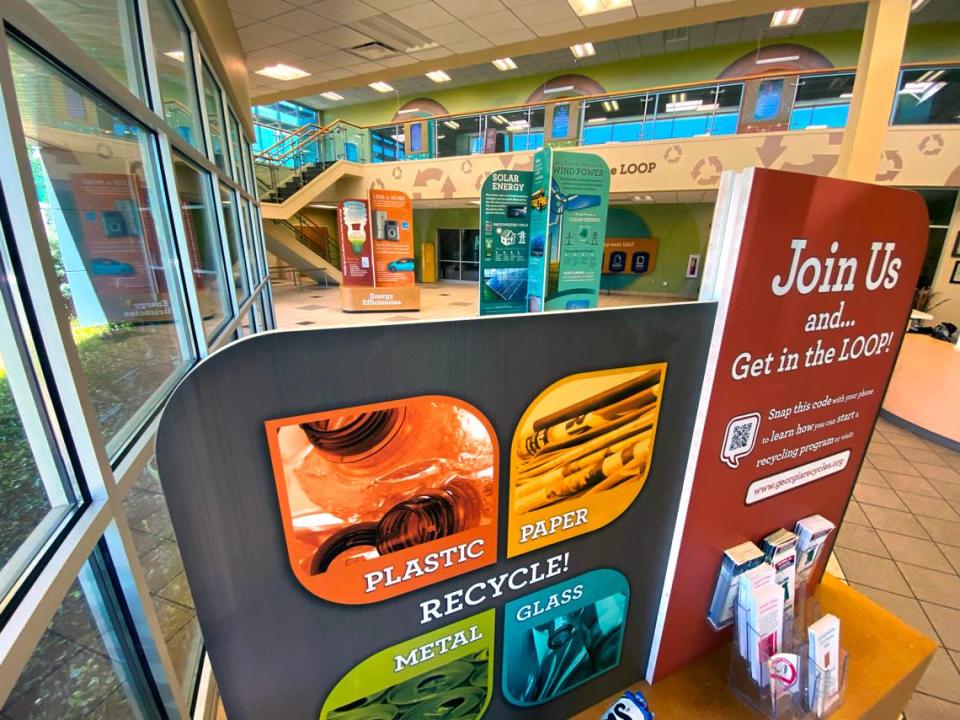What happens to recycled materials after pickup? Curious Columbus has an answer
Columbus’ waste collection process changed in the wake of the pandemic, leading to a learning curve and more questions about the processes.
The Ledger-Enquirer asked readers to submit questions for us to answer, and one reader wanted to find out about recycling.
“What happens to the recycled materials, particularly plastics, collected by the City of Columbus?,” asked reader Peter Norris.
Recycling in Columbus begins at home as customers have three color-coded carts to place waste in for pickup, integrated waste manager John Pittman told the Ledger-Enquirer.

The black cart is meant for household garbage, the blue cart is for recycling and the green cart is for green waste like grass clippings. In the past, customers would be asked if they wanted a recycling cart, Pittman said, but now they are automatically provided with all three carts.
Waste Collections hopes to encourage more residents in the city to recycle with this new process, he said, with approximately 35% of Columbus residents regularly recycling.
“Our goal is to get beyond that 30% to 40%, to 50%, to 60%, to 70%,” Pittman said. “That’s our goal. If we can do that, we can add some life to our landfill by not putting all those recyclables in our landfill.”

The process
The blue recycling carts are labeled with general instructions about what can and cannot be recycled.
This information can also be found on the Public Works website. Accepted items include:
Rinsed and clean plastics, not including plastic bags or straws
Flattened cardboard
All types of paper
Rinsed and clean aluminum cans
Rinsed and clean steel cans
Residents can recycle plastic bags by finding a drop off point in their area. Recyclable plastics have resin identification codes with the numbers 1-7 labled on them. All plastics, 1-7, are accepted by Waste Collection.
“There aren’t any rules,” Pittman said. “It’s plastic.”
Items that can tangle, like Christmas lights or cords, can’t be recycled. Neither can medical needles, batteries, Styrofoam, plastic toys, car parts, tires, wax coated containers, glass or wrapping paper.
People should be wary if a recyclable material has been contaminated with grease. Items like pizza boxes or fast food bags should be placed in the garbage if grease has contaminated them, Pittman said.

Waste Collections’ new automated recycling program began in 2021 with the new truck able to use an automatic arm to grab carts from the curb and into the truck. The goal of the program was to reduce dependence on inmates’ labor.
After recycling has been picked up by one of Columbus’ automated recycling trucks, the material is brought to the Recycling and Sustainability Center at 8001 Pine Grove Way.
The recycling facility opened in 2013 and includes an educational center and capacity production center.
Recycling trucks dump their load in the recycling center as part of a single stream operation.
“Everything goes into one location,” Pittman said. “It doesn’t have to be bagged or anything. We just dump it out.”
A staff member operates an excavator to transfer the material from the pile into trailers that are then picked up by Amwaste, an Alabama-based company, that transports Columbus’ recycling to Montgomery.
Amwaste partners with another company, Repower South, that sorts, processes and distributes recycled materials to the end user, Pittman said.
Along with traditional recyclable materials, Repower also processes materials not captured by traditional programs, including extracting and re-purposing non-recyclable papers and plastics.

Once the recycling is picked up by Amwaste, he said, Waste Collections’ job is completed.
“We are not the end users,” Pittman said. “Maybe someday we will be the end user, and you will actually be able to see the cradle to grave process.”
For now, the operation in the city of Columbus is focused on collection and serving as a transfer station for recycling.
All residents could benefit from recycling more, Pittman said. Not only is it good for the environment, but people can use recycling as a tool to save space in their garbage bin.
“Please recycle here in the city of Columbus,” he said. “...We want to enhance and increase the participation rate here in Columbus. That’s our goal.”
